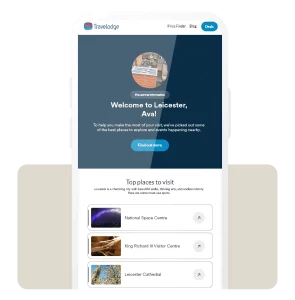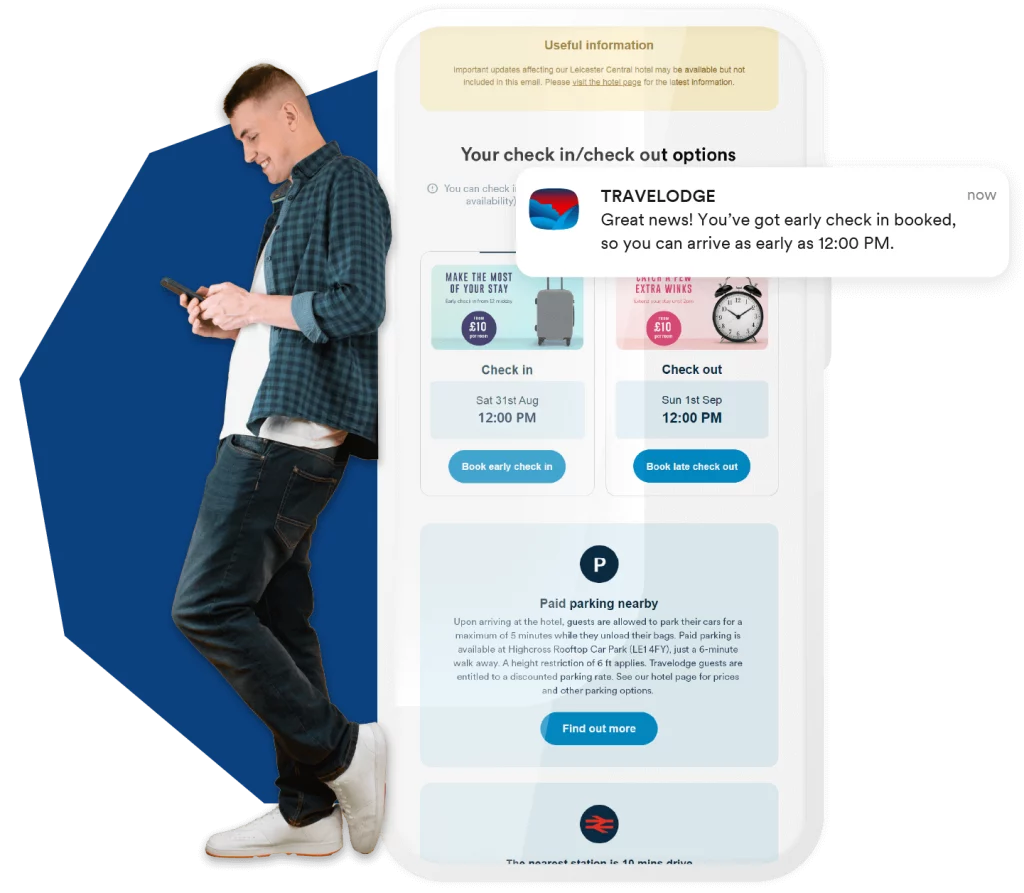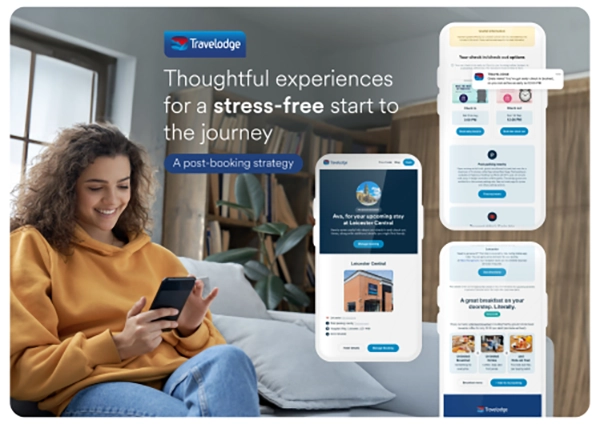Introduction.
In the crowded budget hotel sector, the battle for customers has traditionally been fought on price. Brands compete on discounts, deals, and aggregator listings, often reducing customer choice to little more than “who’s cheapest.”
For Travelodge – one of the UK’s most recognisable budget hotel chains – this environment posed a serious risk. With cost-of-living pressures pushing more travellers to price comparison sites, the brand faced the danger of becoming interchangeable with other low-cost competitors. In short, if you only compete on price, you risk being forgotten.
To stay relevant, Travelodge needed to reposition itself. The challenge was to show customers that while affordability was important, Travelodge could also deliver personalised value, care, and a better experience. The solution was to put personalisation at the heart of its brand strategy.
Campaign context: From transactional to guest-centric.
Travelodge recognised a critical truth: price alone is not a sustainable long-term advantage. To reposition itself, the brand set out to transform how it communicated with guests, shifting from purely transactional messaging to experiences that felt relevant, helpful, and personal.
The strategy focused on the post-booking stage of the journey – a touchpoint often neglected in budget hospitality. Instead of generic confirmation emails, Travelodge built personalised communications that would:
- Build anticipation for the trip.
- Reduce travel anxiety.
- Lightly upsell relevant services, adding value for both guest and brand.
Personalisation at scale.
To deliver this vision, Travelodge turned to AI-powered marketing automation. This technology allowed the brand to use real-time customer data – where guests were travelling, who they were travelling with, and what kind of trip they were on – to shape tailored communications at scale.

Key elements included:
- Dynamic content: e.g. family-friendly offers for parents, Bar-Café menus for food-oriented stays.
- Utility-driven messaging: directions from nearby train stations, tailored itineraries, and pre-arrival checklists.
- Contextual storytelling: emails that went beyond reminders, designed as extensions of the guest experience.
The blend of utility and subtle upselling made messages feel relevant and welcome, rather than intrusive.
Making communications part of the experience.
Travelodge’s communications were crafted to be more than functional. They created a sense of care and connection.
For example:
- Guests with children received family-oriented tips and activities.
- City-break travellers were served recommendations for food, drink, and local attractions.
- Business guests received practical details to streamline their stay.
Every email, app notification, or push message reinforced the idea that Travelodge wasn’t just offering a room – it was enhancing the trip itself.
Results: personalisation that paid off.
The campaign delivered impressive results across multiple dimensions.
Engagement metrics.
- Pre-arrival emails achieved a 72% open rate and 87% click-through rate – far above industry benchmarks.
- App messages saw a 61% open rate.
- Web push notifications generated over 94,000 impressions, extending the reach of personalised messaging beyond email.
Commercial results.
- The initiative generated a 354% year-on-year increase in post-booking revenue, totalling £4.3m in the first half of 2024.
- Upsell opportunities were not just accepted but welcomed, as they were framed around customer needs rather than aggressive sales.
Strategic impact.
- Travelodge repositioned itself as more than a cheap bed for the night.
- The brand established personalisation and guest experience as central to its value proposition, creating differentiation in a sector where price alone was no longer enough.
Student resource: checklist – how to differentiate in a price-led market.
- Identify overlooked customer needs beyond price.
- Map opportunities to add value at different touchpoints.
- Use data to personalise communication.
- Blend functional information with subtle upsell.
- Measure both experience and revenue as indicators of succes.

Takeaway.
Travelodge’s success shows that in markets dominated by price, customer experience becomes the true differentiator. By combining AI-driven personalisation with practical, human-focused messaging, the brand turned low-cost stays into memorable guest experiences – and redefined its competitive position.
For marketers, the lesson is twofold. First, competing on price alone is a race to the bottom. Second, personalisation works best when it adds value, not noise. By meeting customer needs before they even ask, brands can create loyalty, drive revenue, and shift perceptions – without ever losing sight of affordability.


